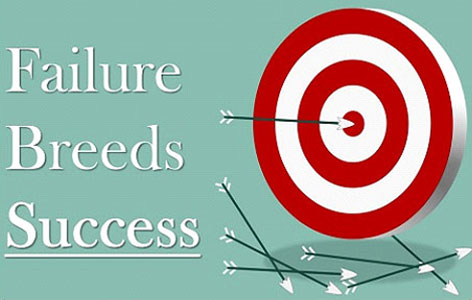
By: Tyler Saumur, ORT Times Writer
You open your email on Monday morning to a new notification in your inbox—a final decision on a manuscript that you had submitted eight months ago. After reading the first two lines, the classic “we regret to inform you” makes an appearance… again.
For early career scientists, the constant rejection of manuscripts, scholarship applications and job applications can take a toll. It can be additionally discouraging when you are constantly immersed in highly cited research and hearing of your peers’ successes around you; this exposure to accomplishments and polished finished products is part of the problem—we tend to only share our successes, while our failures go underappreciated and unrecognized.
Some of the most humbling experiences I have had as a trainee occurred at small conferences where I had gotten a closer look into a researcher’s process. I have found that when you get researchers to really talk about their work, a lot of the discussion revolves around their failures. Seeing these established researchers actively advertising failures that I was also experiencing was a very humbling experience and a huge relief to my imposter syndrome.
The “CV of failures” is a concept that expands our perception of success and gets us talking about our failures, because they do exist. In 2010, Dr. Melanie Stefan from the University of Edinburgh wrote an article published in Nature proposing that scientists create a visible—ideally public—record of their past failures. This CV is meant to allow you to reflect on your setbacks but additionally and perhaps more importantly, inspire others and help them cope with their rejections.
In a recent study from Columbia University, researchers investigated the effect of exposing high school students to the failures of accomplished, well-known scientists (i.e., Marie Curie, Albert Einstein) compared to their successes. The authors found that those who were exposed to the scientists’ failures had greater improvement in their science grades and felt more connected to the scientists than those who learned only about their successes. These improvements were further accentuated in students who had initially performed poorly in their class. This point demonstrates that knowing about the failures not only strengthens the relatability of successful individuals, but also helps inspire success.
Humanizing the world of science and research is vital for trainees to appreciate the power of persistence and grasp the frequency of failure all around us. I challenge all of you to create a CV of your failures and make them publicly available to help inspire our next generation of scientists. You can find my CV of failures here.

